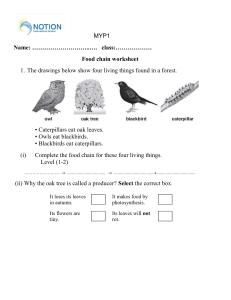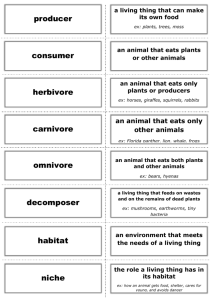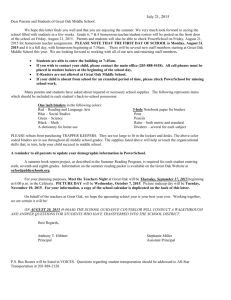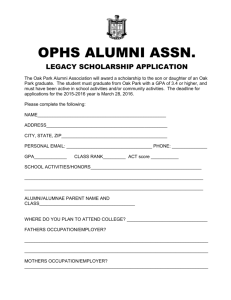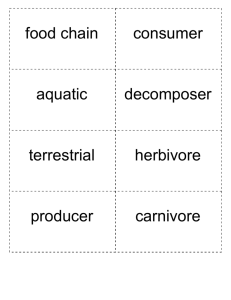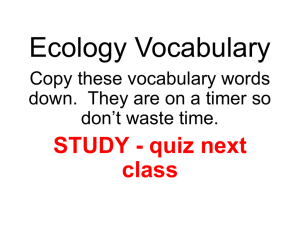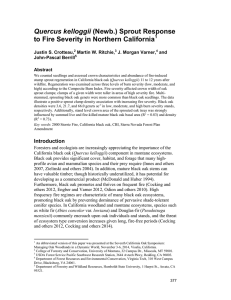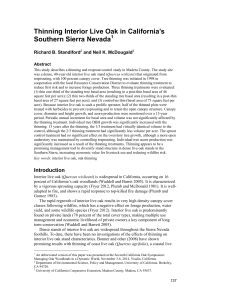linden looper caterpillar eggs
advertisement
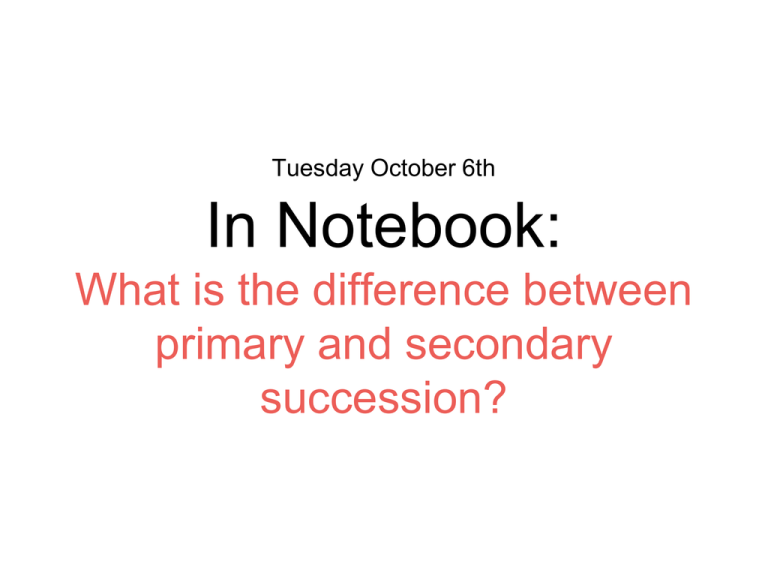
Tuesday October 6th In Notebook: What is the difference between primary and secondary succession? Today’s Learning Targets Agenda: 1. Succession Review 2. Trophic Levels / Food Web 3. Quiz Tomorrow: Cycles & Levels of Organization On a bright spring day the sun shines onto the forest floor. The warm weather and the moist soil cause plants to sprout. Up through the dead and decomposing leaves (humus) come spring beauties, larkspurs, and other spring flowers. The old oak trees unfold their new leaves, and within a matter of days the leaves begin to produce food by photosynthesis. Mushrooms pop up around rotting logs, and beetle larvae (tiger beetle) feast on the mushrooms and decayed wood. Soon the spring warmth triggers the hatching of linden looper caterpillar eggs, and these young caterpillars crawl onto the tender oak leaves and begin feeding. The new tree and understory foliage allow a female deer to eat well; in turn, she provides food to her fawn in the form of milk. The doe rubs her leg against a rough tree because a flea has just bitten her. Earthworms tunnel through the moist earth, leaving behind little piles of soil in which wildflower seeds will sprout. Aphids find the young oak leaves juicy and nourishing. The aphids stick their needlelike mouth parts into the oak's stems and suck its juice. A bright green tiger beetle walks along sunny forest paths searching for its dinner--linden looper larvae that have fallen off the oak foliage. Elsewhere, spiders spin webs to catch unsuspecting insects like midges and young grasshoppers. Another inhabitant of the forest, a white-footed mouse, comes out and searches for food-wildflower seeds, mushrooms, acorns (oak trees), and any caterpillars it finds. Grackles and robins begin courtship and will soon feed caterpillars and earthworms to their young in the nests in the oaks. Linden looper caterpillars have other enemies besides the birds and beetles. A tiny wasp parasite lays her eggs on the caterpillar and the young wasp will feed on it (from the inside out!) until fully grown. As the season progresses, the young birds and mice must be wary of owls and hawks, the deer and fawn wary of the hunter . . . . • Why do we eat? What characteristic of life has to do with food? ENERGY! When we eat we obtain energy and pass on that energy when someone eats us. • Where does the energy initially come from? It will always start with energy from the sun. ** We will discuss how much energy is passed on tomorrow. • Are food webs simple or complex? Complex. Many species can eat multiple species or be eaten by multiple species. • Where is the end of a food web? The last shown organism is the top predator, but ultimately all organisms can die and decay and decomposers will break down the organism. Food Web vs. Food Chain 2 Main Trophic Levels (Classified based on how they obtain energy) Autotroph Heterotroph Auto-: occurring within Hetero-: another -troph: nourish -troph: nourish * Make their own food! * Eat other organisms! Degrees of Heterotrophs Aka - consumers Primary consumers - eat plants Secondary consumers - eat primary consumers Tertiary consumers - eat secondary consumers ... Types of Heterotrophs (Match them up using prior knowledge!) • Herbivore Eats both meat and plants • Carnivore Eats plants • Omnivore Eats decomposing matter • Detritivore Eats meat ** Based on what the organism can receive energy/nutrients from! ** Ready for a catchy tune?? Ecological Food Pyramid
